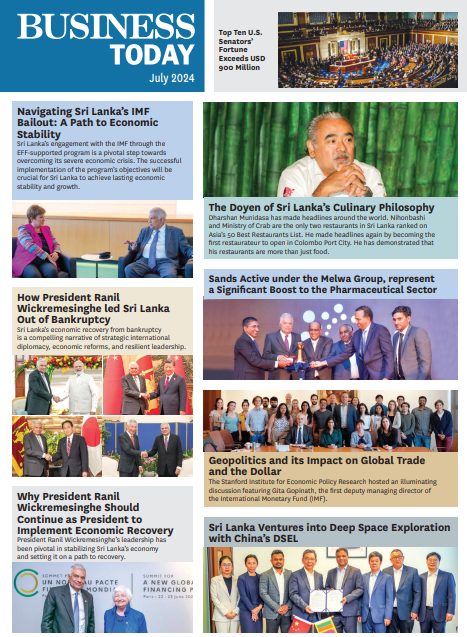Keeping It In The Family
The family-run business has been the foundation of Asia’s corporate identity for centuries. To outsiders, the family firm is an awesome institution based on closely upheld principles of trust and respect. Corporate relations between other family firms may be equally awe-inspiring. Huge corporate deals are often made between families, purely on the basis of a handshake.
The advantages of keeping a business within the family are many-fold. From a personal point of view, the individual family member is able to operate in a familiar environment of mutual support and obligation. Job security not usually a worry. From a fiscal point of view, family members are usually willing to put in extraordinarily long working hours. The hard work is seen as an investment in what will eventually be theirs Smith anyway. Andrew of Haddington Investments in Singapore says that feeling of belonging and the loyalty it induces and the greater output and effectiveness of the company can be very significant and that’s one of the strengths that we’ve been seeing in Asia.
In Asia, the trend is still for the younger generation to look after the older generation, and so too are the younger members of the family on hand to take over the family firm when the founder finally decides to call it a day. That was the case in the past when the family business may have consisted of a corner grocery shop in a remote village. And it is still the case today when the heir may be summoned from MBA studies at a prestigious university or from a thriving career in an unrelated field in North America, for example, to take control of the father’s billion-dollar multinational back home in Asia. The sons, and to a lesser extent, the daughters usually answer the family call.

A Short Line
But family relations are not always smooth sailing. There is always a fragile line between a person’s professional life and his personal life. Statistics show that only 30% of family businesses survive into the second generation. And the general feeling throughout Asia is that a family firm is unlikely to have a future past the third generation. Experts say it is all to do with formulating an efficient succession plan.
Financial experts say too many family business owners are leaving the future success of their companies purely to chance. There may be various reasons for this apparently cavalier attitude towards what may have taken thousands of man hours and life hours to create.
Family emotions and family face run deep. The founder may not want to even consider the prospect of letting go of his baby, he may not want to admit that he is too old to do his duties with the efficiency of days gone by. There may be conflicting visions between the generations regarding the future of the business. The founder may be worried that the heir will completely change the face of what he has built up, perhaps diversifying the product range, changing the client base, introducing technology or altering the traditional structure of the company.
But without a clear succession plan, formulated during the founder’s working life, the family firm is in real danger of either not making it to the next generation, or of falling flat on its face in a very short space of time after the generational handover.
Smooth Handover Rather than relying on advice from within, economically switched-on firms are beginning to look seriously at recruiting know- how from without to assist in developing a plan for the future. There are now many firms on hand in Asia that have the expertise to knock out a succession plan, tailor-made for the distinctive corporate and personal needs of a particular firm.
Some founders of family firms are receptive to bringing an out sider into the company, perhaps installing a second-hand man to learn the ropes and develop new ideas during the founder’s working life. Andrew Smith says ‘I think the more forward-looking businesses realise it’s got to be done. It doesn’t mean they give up to an outsider, it means they capitalize on outside talent.”
The other option is to recruit a consultancy firm in an outside avisory capacity. But family firms are often a tight-knit lot. That won’t wash with an advisor. Any family firm that takes up this option must be prepared to lay their cards firmly on the table and not be distrustful
of telling their secrets to outside forces. A succession plan is not just a case of dealing with the issue of who should take over the reins of the firm, addressing the needs of other members of the family and assuring a smooth transition for the family.
If the adviser is to get on with doing the job of ensuring the fiscal future of the firm, he has to have access to all kinds of information that the family may hold dear. He may possibly need to know more than the owner wants to trust to an outsider.
A succession plan has to get down to the interrelated legal nitty-gritty of corporate finance, estate duty, taxation, a valuation of the company is goodwill, retirement income if the founder is still alive, share transfers, possibly even deal with the sensitive issue of share buyouts by one member of the family.

Accountancy firms say that currently one of the most popular vehicles for ensuring the future of the family company is a trust arrangement. The founder places the company shares in a trust. The future family members may be named as the beneficiaries of the trust but will not be able to lay their hands on the shares in any legal capacity. That means that a grandson, for example, who may not have the same emotional ties to the firm, cannot decide to sell off his shares to a stranger when he is feeling strapped for cash. The family firm has a greater chance of staying together. And the trust arrangement can also bypass some of the fiscal issues such as tax payments.
Another important issue to consider in a succession plan is the well-being of the firm’s employees. The family firm may have already gone that one step further and expanded to include an outside workforce. The staff need to feel at ease with the changes and will have to be assured that the continuity of the firm’s operations will not be affected by the change of management. If the staff lose confidence and leave, this will have a knock-on effect and existing clients may also lose confidence in the firm. There may be bank loans involved. The financial institutions also have to be guaranteed that the firm has the ability to weather the winds of change. Family firm owners should be calmed. Outside consultants know they are treading a fine line when it comes to privacy and they know how to operate with integrity. As Andrew Smith points out ‘We must remember that we’re not as experienced in the commercial aspects of the business as the people who are running it, but we can bring a cross-fertilization. We can help apply solutions and not try to reinvent the wheel. The information may be dear to the members of the family, but to the consultant, it is often just a case of business as usual.’






